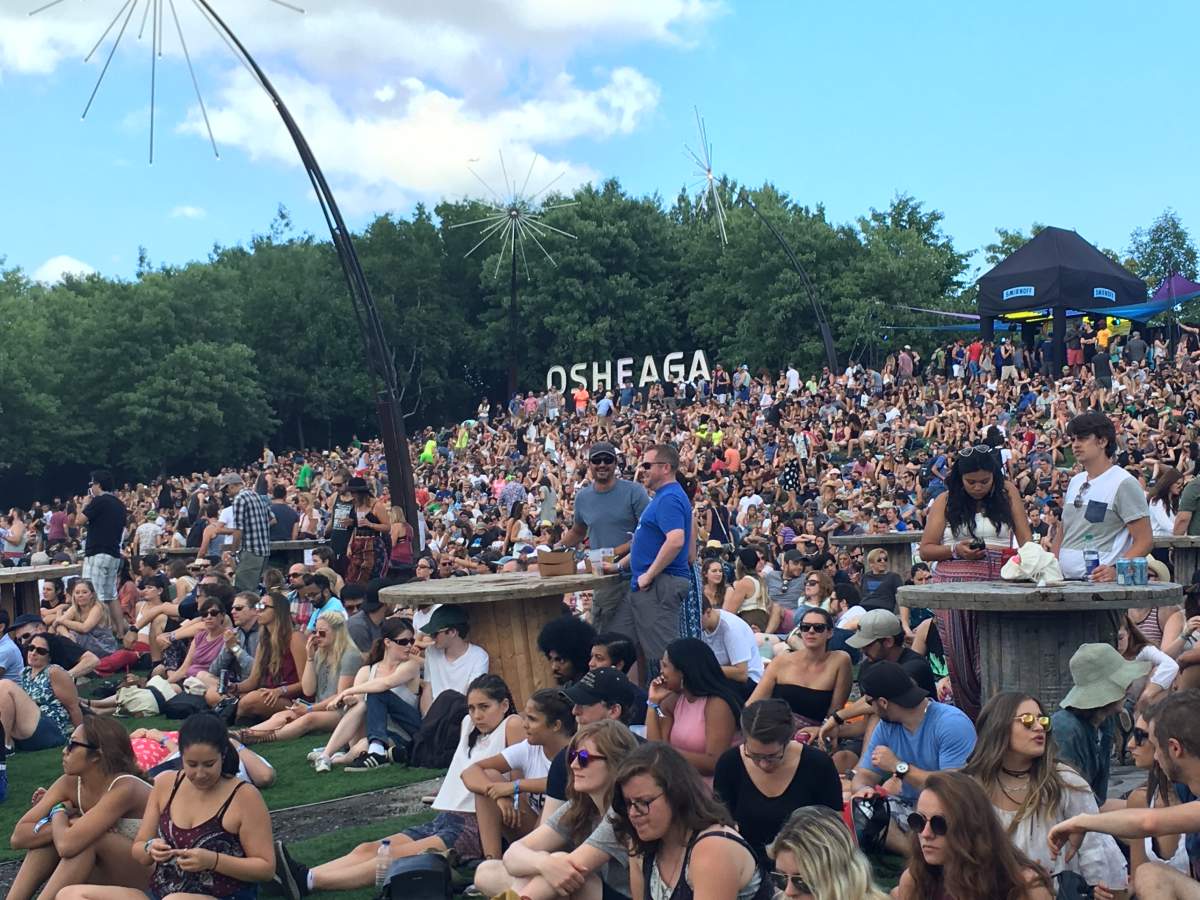New initiatives at outdoor festivals like Osheaga and Île Soniq are being put in place to keep people safe, according to evenko officials.

“The safety and well-being of everyone has always been at the heart of our concerns when organizing all of our events,” said Jacques Aubé, executive vice-president and chief operating officer of evenko via a press release.
“This year, as in the past, we put in place a plan with the primary objective of allowing visitors to fully enjoy the entertainment experience in a safe environment.”
READ MORE: Montreal woman calls for change after allegedly being drugged at Osheaga
This comes just one year after Melanie Maxine Doucet, a Montrealer came forward to claim she had been slipped a date rape drug at Osheaga in 2016.
“I think it’s better than having nothing in place. I think it’s a huge step forward,” the PhD student told Global News.
The initiatives include:
Hirondelles
This mobile security teams is expected to be spread out throughout the festival sites.
They will be easily identifiable due to a custom-made logo representing “hirondelles,” or swallows that will be displayed on the agents’ armbands as well as on posters and near quiet spaces.
READ MORE: Evenko investigates after Montrealer claims she was drugged at Osheaga
evenko explains this squad is specially trained for the needs of women and vulnerable people.
“I just wonder how they plan to evaluate it after the first year,” said Doucet, who said she will not be going to Osheaga this year.
“I’d like to make sure that those types of initiatives are actually doing what they say they’re doing before I attempt going again, if ever.”
She insists that evaluating the success of the project is the only way to make sure no one else experiences what she did.
“That was my problem. I couldn’t get myself out fast enough and there was no help,” Doucet told Global News.

Get weekly health news
“We need trained people, that’s what I was advocating for.”
GRIP Montréal
GRIP Montréal will have representatives onsite for the fourth year.
READ MORE: Should the federal government help music festivals book big name artists?
The non-profit organisation aims to reduce the harm associated with the consumption of psychoactive substances and prevent problematic use on the festival sites.
A relaxation space named “Haven” will be available to festivalgoers who need quiet, rest, and support from experienced workers.
There will also be various intervention groups including first aid, monitoring teams to identify festivalgoers in distress, as well as a psychologist/sexologist to intervene with people in need of particular care.
“The personnel of these teams has received additional training allowing them to identify problematic situations and they are aware of the different issues related to the safety of male and female festivalgoers,” evenko stated in a press release.
“Well-identified safe areas will be installed in various locations on the site for festivalgoers in need of care or support. “
When it comes to rape culture at outdoor festivals, Doucet says “it’s the sad reality of things” that squads have to be put in place to look after people who find themselves in vulnerable situations.
READ MORE: More than a hundred detained for drugs at Île Soniq music festival
“I’m not the only one this has happened to, clearly,” she told Global News, citing the Conseil des Montréalaises study that found more than half of respondents admitted they had been drugged at an outdoor festival.
“I’m just one of the few that has spoken out about it because there’s such a stigma attached to it and the reaction of most people is to blame the victim.”
WATCH: A Montreal woman who claims she was given a date rape drug at Osheaga is calling for change.

Take care of yourself
Festivalgoers will also be able to fill in basic information — such as name, contact details, allergies and emergency contact — on their RFID bracelets.
The following will also be in place:
- Mandatory search of festivalgoers, guests and employees entering the site.
- Installation of physical security features such as concrete blocks at the various access points of the site.
- Police presence near the entrance for prevention and to increase the interception of drugs.
- Training and awareness-raising of the security and welcome staff in terms of vigilance and security procedures.
- Presence of first-aid workers, including several paramedics and nurses.
- Mobilization of an emergency medical service including doctors and nurses who can treat and prioritize cases.
- Presence of Urgences-Santé.




Comments